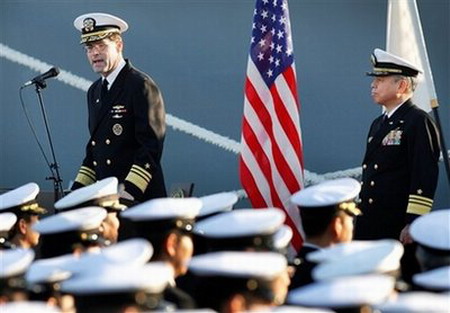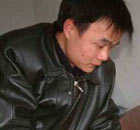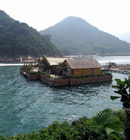Asia-Pacific
US, Japan mark 50 years since security pact signed
(Agencies)
Updated: 2010-01-19 14:49
 |
Large Medium Small |
|
 Commander, US 7th Fleet, Vice Adm. John Bird, left, delivers his speech as Japan Maritime Self-Defense Force Fleet commander, Vice Chief Adm. Masahiko Sugimoto listens during a ceremony marking 50th anniversary of signing of US-Japan Security Treaty at the Japan Maritime Self-Defense Force base in Yokosuka, west of Tokyo, Tuesday, Jan. 19, 2010. [Agencies] |
TOKYO: Japan and the US marked the 50th anniversary of the signing of their security pact Tuesday even as a dispute over plans to move a US Marine base on the southern island of Okinawa strains ties between the two major trading partners.
Prime Minister Yukio Hatoyama said in a statement that the treaty, which obligates the US to respond to attacks on Japan, "has contributed not just to the security of this country, but also to the stability and prosperity of the Asian-Pacific region."
The treaty was signed in Washington on January 19, 1960, and came into effect on June 23 of that year after the treaty was approved by the Japanese parliament, amid a fair amount of public opposition at the time that has since largely faded.
Washington and Tokyo agreed in 2006 to reorganize US troops in Japan, including moving 8,000 Marines to the US territory of Guam, as a way to lighten the burden on Okinawa. Part of that plan involves relocating US Marine airfield Futenma to the northern part of the island where it less congested.
But Hatoyama's government -- which came to power in September after trouncing the long-ruling and staunchly pro-US conservatives in general elections -- has balked at moving Futenma to the designated location. Some Cabinet members say they want it moved off Japanese territory entirely, which is the sentiment of many local residents.
The US military views Futenma as critical to its strategy for defending not only Japan but also reinforcing allied forces in the event of war on the Korean peninsula. US Defense officials have said the delays will affect the timetable of the entire realignment plan and foster mistrust.
Administrations in both countries have been eager to play down the dispute, with Hatoyama repeatedly saying the 50-year old security pact is the "cornerstone" of Japan's diplomacy, even as he has stressed that he wants Tokyo's ties with Washington to be more equal and less subservient.
Meeting in Hawaii last week with Secretary of State Hillary Rodham Clinton, Japanese Foreign Minister Katsuya Okada said Tokyo would determine the future of Futenma by May in a way that would have "minimal impact on the US-Japan alliance."
Clinton, meanwhile, said Washington felt assured of Japan's commitment to the alliance and respected the process the new government is going through to reach a resolution.
Chief Cabinet Secretary Hirofumi Hirano stressed Tuesday that the issue won't hurt ties with Washington, and that the government is actively tackling the issue.
"Security will continue to be the basis of our relationship," Hirano told reporters. "It is not the case that if we don't immediately solve the Futenma issue we can't deepen relations."











